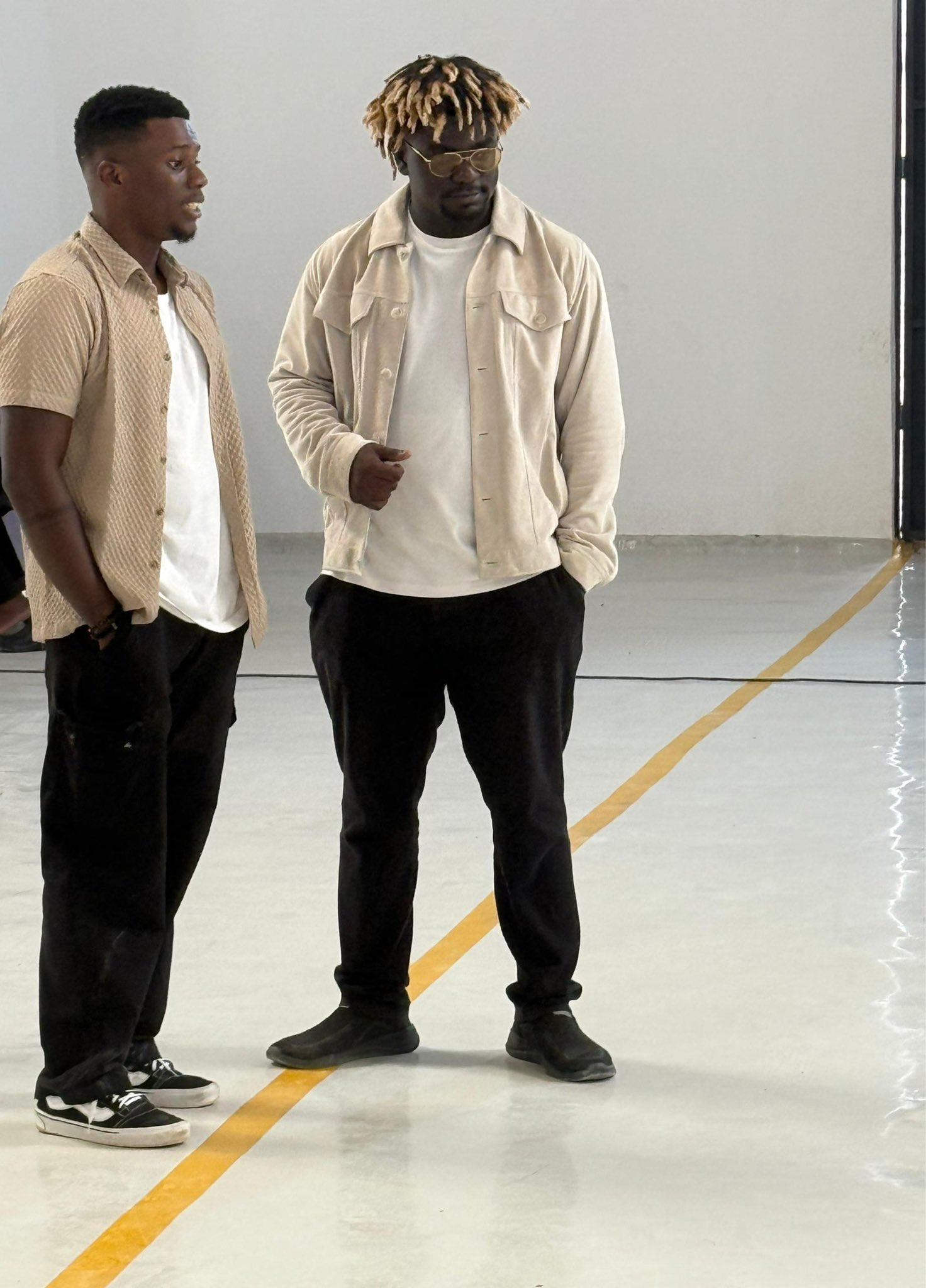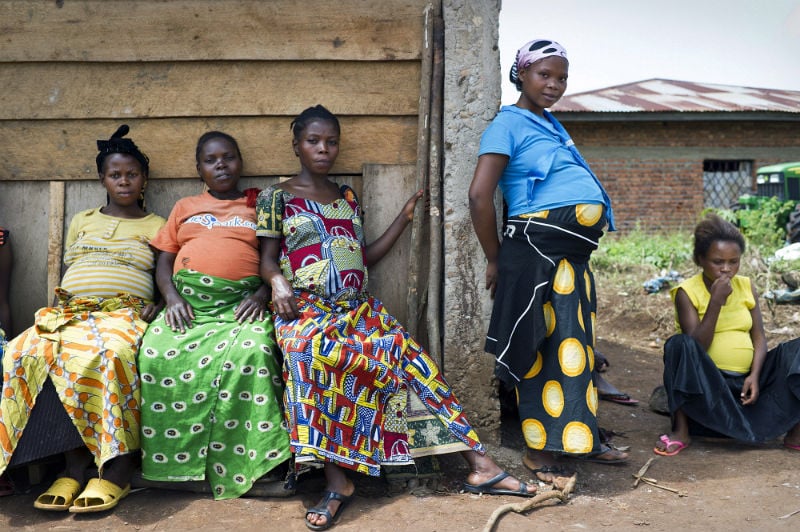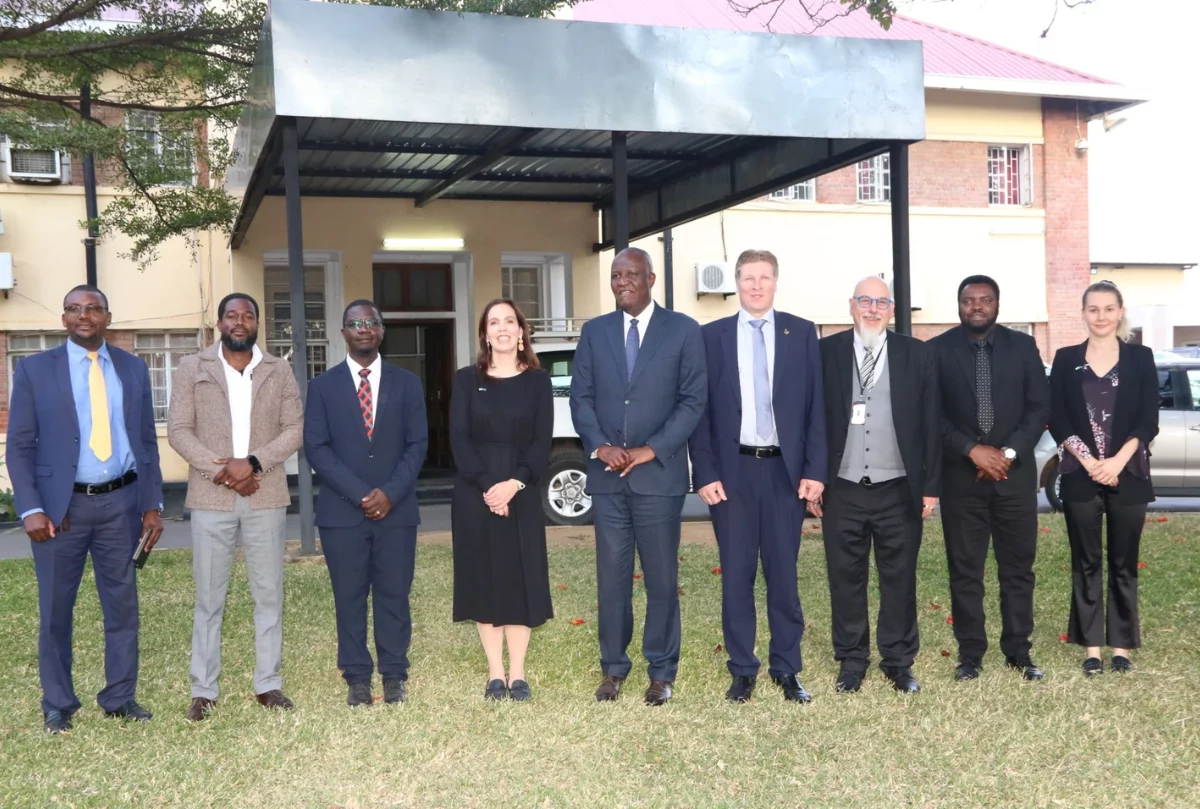In the bustling heart of Abuja, Nigeria’s capital, where innovation meets ambition, two young visionaries are rewriting the narrative of African technology. Maxwell Maduka, 23, and Nathan Nwachuku, 22, co-founders of Terra Industries (also known as Terrahaptix), have transformed a “crazy dream” into Africa’s largest drone manufacturing powerhouse. What began as a modest startup in 2023 has catapulted Nigeria onto the global stage, exporting cutting-edge autonomous systems to multiple countries and securing multimillion-dollar contracts—all while addressing Africa’s most pressing security and industrial challenges.
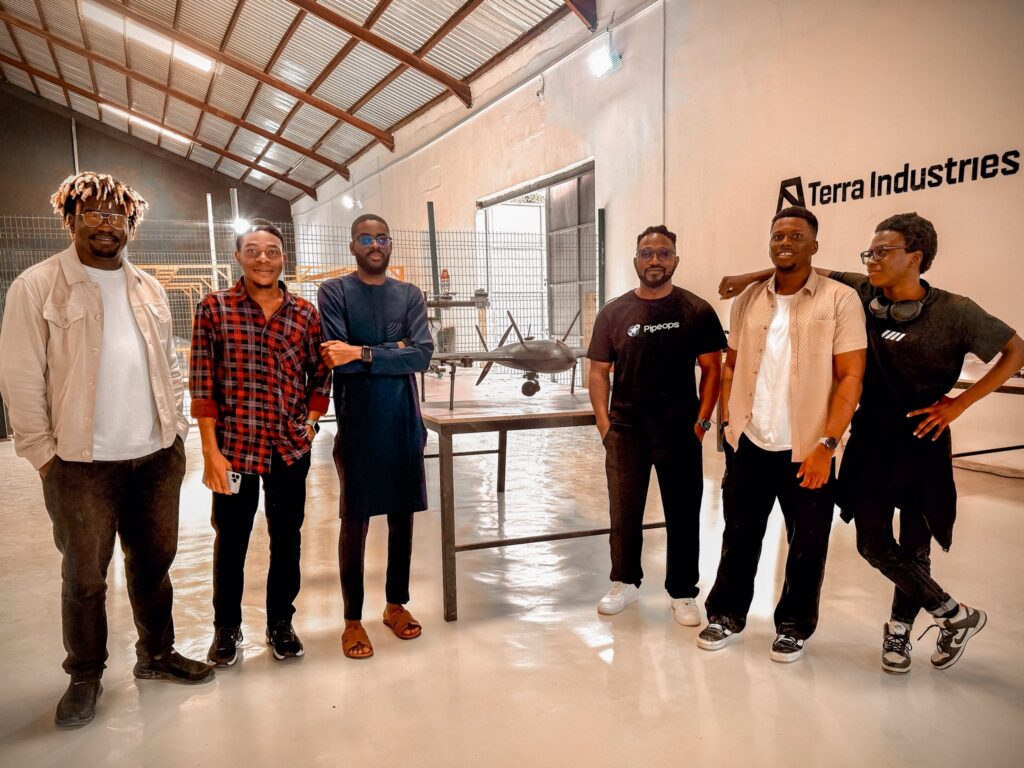
The Humble Beginnings: From Physics Enthusiasts to Tech Pioneers
Maduka and Nwachuku’s journey started in their university days, fueled by a shared passion for physics, engineering, and a deep frustration with Africa’s insecurity crisis. “For Africa to truly industrialize, we must first solve the common denominator holding the continent back—insecurity,” Nwachuku has often said in interviews. Growing up in Nigeria, they witnessed how threats like border breaches, kidnappings, and attacks on critical infrastructure—such as mines and power plants—cost the continent billions annually and stifled growth. Traditional solutions were inadequate: imported tech was expensive, unreliable, and often compromised data sovereignty.
In 2023, at ages 22 and 20 respectively, they founded Terrahaptix with less than $600,000 in funding. Their goal? To build entirely African-made autonomous security systems, including aerial drones, ground robots, and AI-powered sentry towers. Starting in a small workshop, they focused on in-house production: airframes, propellers, lithium-ion batteries, and their proprietary Artemis OS software, which enables real-time threat detection and response. By emphasizing local manufacturing, they ensured affordability, adaptability to African terrains, and full control over sensitive data—no foreign vulnerabilities.
Challenges abounded. Skeptics dismissed them as “two kids in their early 20s” attempting world-class robotics. Funding was scarce, supply chains erratic, and regulatory hurdles loomed. Yet, their resilience shone through. They designed rugged, energy-efficient systems tailored for harsh environments, turning obstacles into innovations.
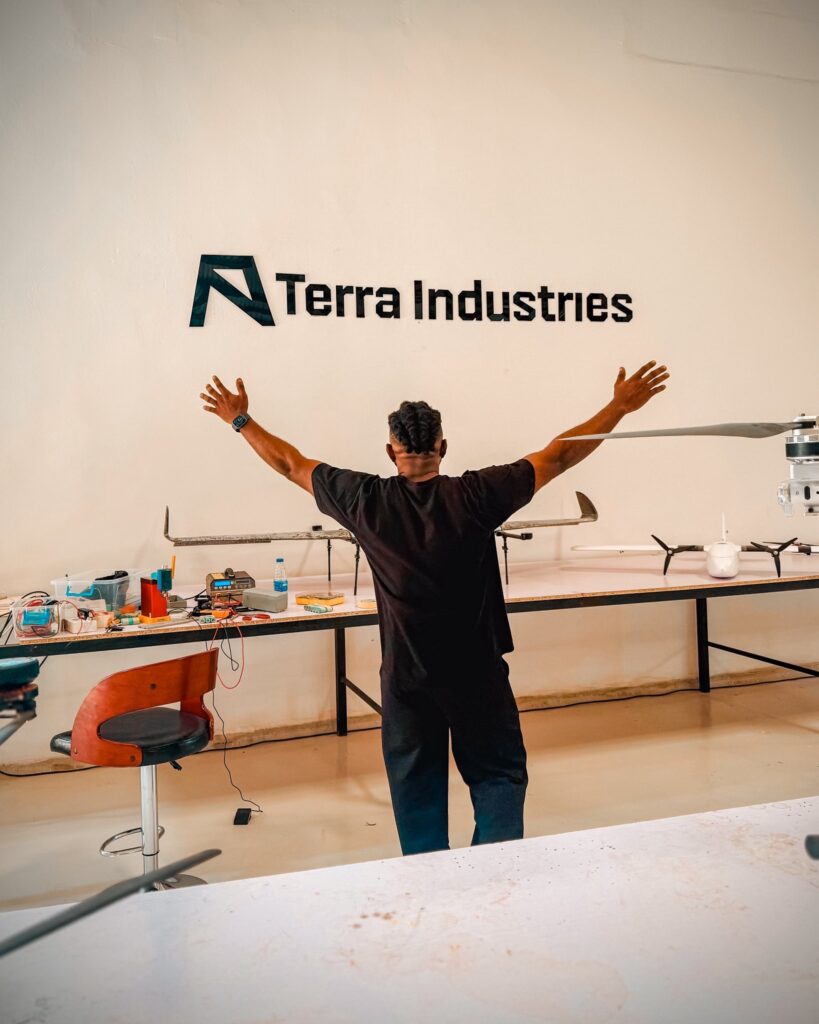
Breaking Barriers: From Local Factory to Continental Exports
By February 2024, Terrahaptix unveiled Africa’s largest drone factory in Abuja’s Idu Industrial District—a 15,000-square-foot facility equipped with R&D labs, 3D printing, machine shops, and assembly lines. Capable of producing up to 10,000 drones annually (with plans to scale to 30,000), the factory marked a seismic shift. No longer just importing tech, Nigeria was now exporting it. Their drones found applications in defense, agriculture, energy, logistics, mining, and surveillance—protecting everything from gold mines to hydropower plants.
Milestones piled up rapidly. In May 2024, the company briefly shifted focus from defense to commercial markets but quickly adapted, securing deals across sectors. By March 2025, they were shipping sentry towers to mines in Northern Nigeria, providing real-time threat deterrence. In June 2025, they outbid an Israeli consortium for a $1.2 million, five-year contract to deploy AI drones and smart towers at two Nigerian hydroelectric plants—boosting power generation efforts and proving their tech’s global competitiveness.
Within 11 months, Terra generated $1.9 million in revenue, protected $11 billion in assets, and exported to eight African countries, including South Africa, Ghana, and Kenya. Contracts exceeded $12 million, with ambitions to safeguard $1 trillion in African infrastructure. Social media buzzed with pride: “Nigeria to the world!” as users shared stories of homegrown innovation.
The Global Spotlight: CNN and Beyond
The turning point came in June 2025 when CNN visited their factory for the “Connecting Africa” series. Aired on August 2, 2025, the segment showcased assembly lines humming with activity, live drone demos, and interviews with the founders. Correspondent Victoria Rubadiri highlighted how Terra’s systems are “protecting Africa’s skies, borders, and industries with next-generation technology.” The YouTube video, titled “Terra Industries on CNN,” went viral, amassing views and sparking international interest.
This exposure propelled them further. By mid-2025, Terra was eyeing expansions to the US and Europe, with over $2 million in orders secured. They integrated advanced AI for predictive analytics and sustainable energy sources, positioning Nigeria as a leader in the continent’s drone boom. As Nwachuku noted on LinkedIn, “11 months ago, Terra began with a crazy dream. Today we operate Africa’s largest drone factory.”
A Legacy in the Making: Inspiring Africa’s Next Generation
Maduka and Nwachuku’s story is more than a business success—it’s a blueprint for African self-reliance. By outpacing established players and fostering local talent, they’ve countered narratives of dependency. Their factory not only creates jobs but trains engineers, building an ecosystem for future innovators.
Looking ahead, they aim to revolutionize industries with blockchain integration for secure data management and expand into military-grade tech, rivaling global giants. As Africa grapples with a mining boom for critical minerals like lithium, Terra’s drones are indispensable for mapping sites, guarding assets, and ensuring compliance—without owning a single mine.
In a world where youth-led tech is often overlooked, these two Nigerians have soared. From Abuja’s industrial district to CNN’s global audience, they’ve taken Africa’s drone industry to the world stage, proving that with grit and ingenuity, the sky is no limit. As Maduka puts it, “We’re not just building drones; we’re unlocking Africa’s true potential.”

